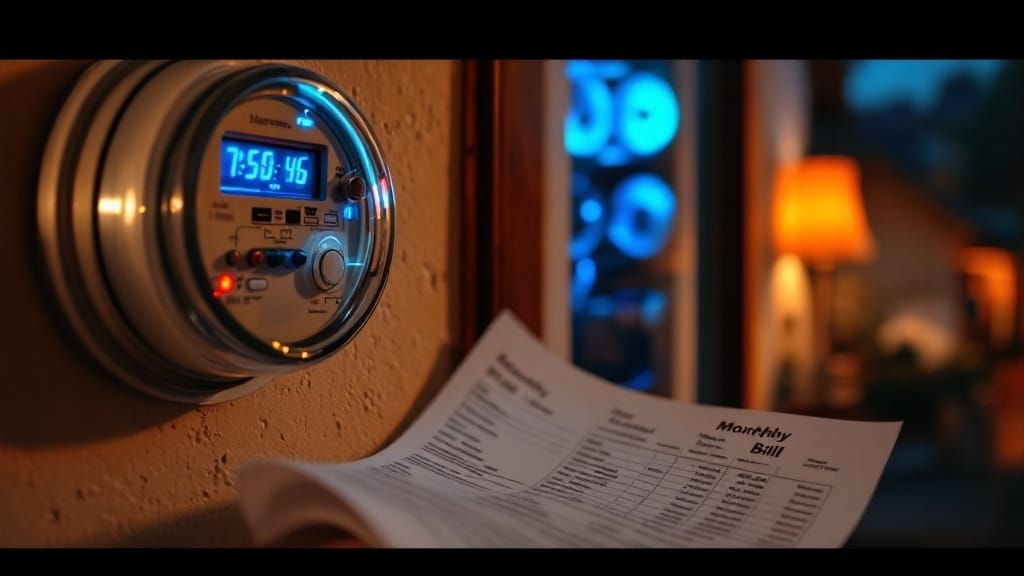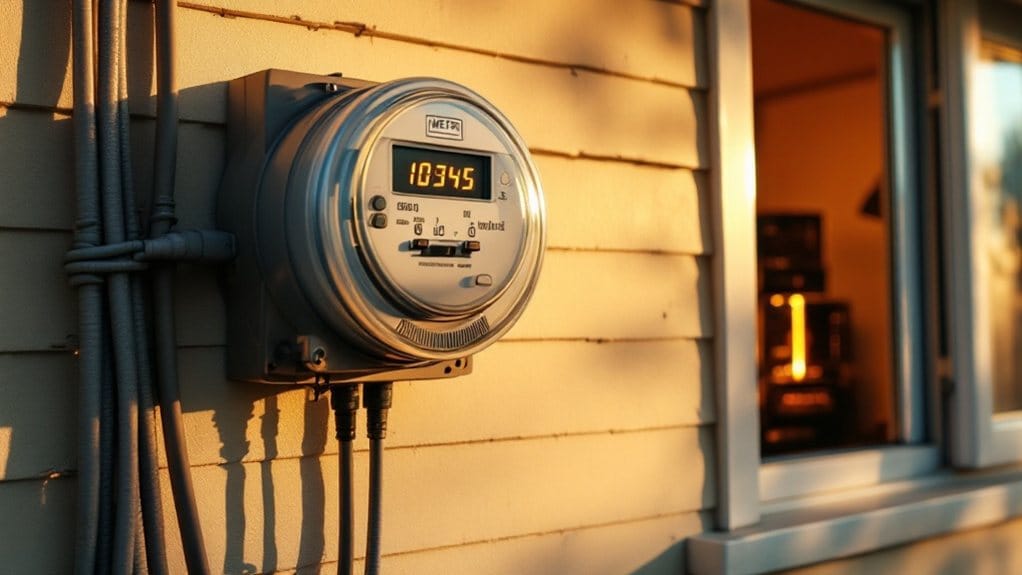Airbnb hosts can detect unauthorized cryptocurrency mining through significant spikes in electricity consumption, typically revealed in monthly utility bills. Normal rental usage of $150-200 can surge to $1,500 or more when guests operate mining rigs, making electricity monitoring a reliable detection method. Property managers utilize a combination of utility bill analysis, security camera surveillance, and neighbor reporting to identify mining operations, while implementing preventive measures like explicit prohibitions and usage thresholds offers thorough protection against this growing concern.

While Airbnb hosts have traditionally focused on managing standard rental concerns, a new challenge has emerged in the form of cryptocurrency mining operations being conducted by guests in rental properties. Hosts are increasingly realizing that analyzing electricity bills can serve as a primary indicator of unauthorized mining activities, with some reporting dramatic spikes from typical monthly costs of $150 to extraordinary charges exceeding $1,500 for three-week stays. Some guests have set up improvised charging stations without permission, further complicating the monitoring process.
Detection methods have evolved beyond simple bill analysis, incorporating multiple surveillance strategies and community awareness initiatives. Hosts now utilize outdoor security cameras to monitor equipment movement, while maintaining communication networks with neighbors who can report unusual noise levels or excessive hardware presence. A TikTok video by one host sparked widespread discussions about these emerging challenges. These combined approaches have proven effective in identifying potential mining operations before they result in substantial utility costs. The complex cryptographic puzzles solved by mining equipment generate significant heat and power consumption, making detection through utility monitoring particularly effective.
The financial implications of crypto mining in rental properties extend beyond immediate electricity costs, prompting hosts to implement specific preventive measures. Many have updated their property listings to explicitly prohibit crypto mining and EV charging, while others have established electricity usage thresholds with associated overage charges.
These policies often receive support from Airbnb’s customer service team, who can assist in dispute resolution when excessive utility consumption is documented. Environmental concerns parallel the economic implications, as crypto mining operations consume significant amounts of energy and contribute to broader ecological impacts.
This has led some regions to implement restrictions on mining activities, particularly in residential areas where power infrastructure may not be designed for such intensive use. Miners, attracted by residential electricity rates that are often lower than commercial alternatives, have created a pattern of seeking rental properties as cost-effective mining locations.
Successful prevention strategies now include thorough guest screening processes and clearly documented house rules regarding electricity usage. When combined with regular utility monitoring and community vigilance, these approaches help hosts maintain control over their property’s energy consumption while protecting themselves from unauthorized mining operations.
The implementation of quick resolution mechanisms through Airbnb’s platform guarantees that hosts can address violations promptly and seek appropriate compensation when necessary.
FAQs
What Specific Mining Hardware Can Consume the Most Electricity in Airbnb Rentals?
Among high-powered mining hardware, the Bitmain Antminer S19 Pro+ Hyd consumes the most electricity at 5445 watts, followed closely by the Antminer S19 XP Hyd at 5304 watts.
The Bitmain Antminer S19j Pro+ and S19 Pro, along with the Canaan Avalon Made A1366, consume relatively less power, ranging from 3250 to 3355 watts, but still represent significant electricity demands in rental properties.
Can Hosts Install Electricity Monitoring Devices Without Informing Guests?
Installing electricity monitoring devices without guest notification is generally prohibited under privacy laws and rental regulations.
Property owners must obtain explicit consent and disclose all monitoring equipment during the booking process.
While smart meters and energy monitoring systems can effectively track usage patterns, their undisclosed installation may result in legal consequences, privacy violations, and potential termination of hosting privileges on rental platforms.
How Much Does Crypto Mining Typically Increase Monthly Electricity Costs?
Cryptocurrency mining typically increases monthly electricity costs by 200-300%, with a single mining rig consuming approximately 2 kW/h.
For residential properties, this can translate to bill increases from $200-300 to $600-900 monthly, depending on local electricity rates and mining intensity.
Large-scale operations with multiple rigs can escalate costs dramatically, potentially reaching $1,500 or more for a three-week period of continuous mining activity.
Are There Legal Precedents for Suing Guests Over Unauthorized Mining?
Legal precedents for suing guests over unauthorized crypto mining are emerging in several jurisdictions, with courts recognizing diverse grounds for action.
Cases typically rely on:
- Breach of rental agreement terms
- Tort claims for property misuse
- Energy theft statutes
- Quantifiable damages from excessive utility bills
Most successful cases have demonstrated clear evidence of mining activities through electricity consumption data, surveillance footage, and witness testimony from neighboring properties.
Can Smart Meters Detect Unusual Power Consumption Patterns From Mining Activities?
Smart meters can effectively detect unusual power consumption patterns associated with crypto mining through real-time monitoring and advanced analytics.
These systems employ machine learning algorithms to identify sustained high-energy usage, abnormal load patterns, and consumption spikes characteristic of mining operations.
While individual household variations and legitimate high-usage events can complicate detection, modern smart meters utilize statistical analysis and comparative techniques to flag potentially unauthorized mining activities with increasing accuracy.









